The American Political System and the 2024 Elections
Conference paper presented at the Autonomous University of Mexico City.
A short note before we start.
The paper below was presented on October 23rd, 2023, at the Autonomous University of Mexico City (UACM in Spanish), a school on the outskirts of the capital in one of the poorer regions of the country. I was asked to give an overview of the foundation of the American state, its structure, and my views on the upcoming 2024 elections. It kicked off the Congress on Interculturality, Juridical Pluralism, Human Rights and Critique of Law, hosted by the National Autonomous University of Mexico (UNAM in Spanish).
The presentation could not have gone any better. The auditorium was filled with workers and indigenous people. The level of class consciousness was astounding. While presenting most heads nodded in agreement, something quite hard to imagine happening in the US with a lecture so critical of American capitalist-imperialism. All the questions were terrific, most of which expressed a curiosity as to what the American people felt about x or y event. It was clear to me that they understood very well the difference between the American people and the imperialist state which wrongly acts in their name. In replying to one of the questions on the on-going genocide of the Palestinians I almost found myself in tears, both because of the gravity of the topic I was discussing, but also because of the heartfelt reactions I saw from the crowd. I did not have a doubt that most people in that room sympathized with the Palestinian plight, seeing in it their own struggles against capitalist-imperialism.
"Homo sum, humani nihil a me alienum puto" - Terence. This was Marx’s maxim; it was also the motto at UACM.
The American Political System and the 2024 Elections
By: Carlos L. Garrido
The United States was founded out of an intense class struggle against British colonialism. It produced the first anti-colonial revolution in the hemisphere, serving as an inspiration for virtually all other bourgeois revolutions in the late 18th and 19th century. The revolution, and the subsequent contradictions which ensue after its success, were a reflection of the contradictions within the colonists themselves, many of which were temporarily placed aside to coalesce forces against the principal contradiction of British colonialism.
While it was a historically progressive bourgeois revolution, a lot of the fighting was done by the popular classes, folks who made their livings as carpenters, blacksmiths, shoemakers, etc. These popular classes were driven to action, not just by the immediacy of their deteriorating situation, but by their democratic desires for popular sovereignty and a democratic state controlled by the people as a whole. These desires, while given lip-service throughout American history, have never been actualized. The American state, like every other state in human history, has been a tool for protecting the interests of the economically dominant class. The class in whose hands control over the means of production is, also controls the politics, judicature, media, and all other social institutions, shaping their central function to the smooth reproduction of the existing state of affairs.
That the American state has warped itself into being the bulwark of reaction and counterrevolutionary struggles, does not mean that its founding revolution did not have a historically progressive kernel. It was the first state in history to proclaim its freedom with appeals to a universal humanity, where all are created equal and endowed with the rights to life, liberty, and the pursuit of happiness. These rights, when oppressed by a government, offer the citizens not only the right, but the duty, to overthrow such a government. It brought into being a successful struggle against feudal absolutisms, radically transforming the whole mode of life – its economic, political, social, and juridical dimensions. It ushered in the separation of church and state; a republican state; public education; the elimination of laws of entail that allowed the monopolization of wealth within a select few families; the elimination of primogeniture; it expropriated the lands of the king and Tories, redividing them on a significantly more equitable basis; it made efforts to abolish indentured servitude, and limited African slavery to the southern states; and, by removing the feudal fetters to the development of the productive forces, it stimulated the onslaught of capitalism, moving history forward.
It was, in general, a step forward in universal history. In many of the European states, teachers in the late 18th century could be blackballed from the academy if they taught the Declaration of Independence. The democratizing potential, although never fully realized, was evident to the elite across Europe at its time. Even well into the 20th century the radicalism of the Declaration of Independence was still being appealed to, by, for example, Fidel Castro in History Will Absolve Me, and Ho Chi Minh, in the Vietnamese Declaration of Independence.
Thomas Jefferson, himself a figure riddled by contradictions, condemned the concentration of wealth within a few hands. He felt that the revolution was threatened by a small aristocracy of wealth that was in constant contrast with the misery of the many. For this, he proposed various measures for preventing such grotesque wealth inequality – some of these measures, such as progressive taxation, are still being fought for by social democrats today. In 1779, the Virginia Gazzette, caught up in the democratic fervor of the revolution, made a call for what today we would describe as the nationalization of property put under administration by the people for the people. It urged that we must “take the whole trade of the continent out of the hands of individuals and let it be carried on for the benefit of the public by persons authorized by the legislature under stated but liberal salaries.” In 1776 Connecticut adopted price-fixing legislation to combat the profiteering of the capitalists, whom they described as the “great pests of society, who prefer their own private gain to the interest and safety of their country.”
It is not hard to see the danger that this general democratic fervor presented for the bourgeois order that ushered it in – an order that would create its own forms of tyrannical absolutisms rooted in the modernized form the master/slave relation takes with the capitalist and the worker. The American elite was not oblivious to this. While the progressive elements favored a more expansive democratization of society, other segments fought vehemently against it. Their rejections of feudal absolutisms were less based on a democratic fervor than on the limitations these presented for their class interests. The embryonic development of the American state is a product of these contradictions, of the compromises each faction of the revolutionaries took to usher in a new state.
The revolution would go on to produce a constitutional federal republic with a presidential system. Taking its cues from John Locke, Montesquieu, and other bourgeois political philosophers, the US constitution would enshrine the separation of powers between three branches of government destined to check each other and sustain the balance of power between them.
The executive branch is composed of the President which is the head of state, leader of the federal government, and Commander in Chief of the United States armed forces. While there are presidential elections, the voters elect the president only indirectly, as it is ultimately the electoral college that picks the president. Within the executive branch you also have the Vice-President who becomes president if the President is unable to serve, and who presides over the U.S. Senate and breaks ties in Senate votes, and the Cabinet advisors to the president, which include the vice president, heads of executive departments, and other high-ranking government officials nominated by the president and approved by the Senate.
The legislative branch is composed of a bicameral congress that drafts proposed laws, confirms or rejects presidential nominations for heads of federal agencies, federal judges, and the supreme court, and has authority to declare war. The senate, known also as the upper chamber, is composed of 100 members, two for each state. Originally, the senators were selected by the state legislators. This would change with the 17th amendment, ratified in 1913, where senators would be directly elected by the people. Once elected, senators stay in power for 6 years. The House of Representatives, known as the lower chamber, is dictated by the proportion of the population of each state, with small states like Wyoming having 1 and large states like California having 53. The House has the power to initiate all revenue bills, impeach federal officers, and elect the president if no candidate receives a majority of votes in the Electoral College. They are in power for 2 years once elected. Both senators and house members are not subject to term limits. There are currently around 8 people who have been in congress for more than 40 years, with Iowa’s Chuck Grassley at the lead with 48 years in power.
Lastly there is the judicial branch, which is composed of the Supreme Court and other federal courts. Its task is to interpret the meaning of laws, apply the laws to individual cases, and decide if laws violate the Constitution. Federal judges are selected by the president, and, if approved by the senate, can serve for life, without any term limits.
The US constitution also includes the Bill of Rights, the first ten amendments of the document. The Bill of Rights was produced as a compromise between the federalists and the anti-federalists, who were skeptical of governmental power and wished to guarantee individual freedoms within the constitution. Amongst these are the rights to free speech, religious freedom, media and assemblage, the rights to bear arms, the prohibition of soldiers quartering private dwellings in peace time, the protection against unreasonable search and seizure, the right to a grand-jury indictment for serious offenses, protecting against double jeopardy in criminal cases, the prohibition of compelling testimony by a person against himself, the rights of the accused to a speedy trial, an impartial jury, and guarantees to the right of legal counsel and to the obtaining of witnesses in his favor, the prohibition of excessive bail and cruel and unusual punishment, and the reserving to the states and people any powers not delegated to the federal government.
While the American state was shaped with an eye to the rejection of feudal absolutism, there was another class feared by a good number of the founders: working people. Most founders deeply distrusted the people, the tyranny of the majority as De Tocqueville would say. In many ways, the priority of the state they established was not democracy – as today’s narrative urges – but the liberty of capital. Like Locke in the Second Treatise of Government, the American constitution is a document deeply embedded in a tradition that holds that the government’s central purpose is the protection of property and propertied individuals. Instead of Lincoln’s assertion of a government of, by, and for the people, what the US state has actually produced is a government of, by, and for capital, or, extending Lincoln’s understanding of people, government of, by, and for people with capital.
This is clearly seen in James Madison’s Federalist 10, where he provides a lesson in divide et impera. Discussing the topic of factions, he notes that the most common and dangerous forms of factions are those rooted on the “unequal distribution of property.” To prevent a faction of the majority/people that can threaten the order of the rich elite, it is necessary, Madison observed, to factionalize them as much as possible. As he argued:
to prevent a majority faction from emerging: “you [must] take in a greater variety of parties and interests … make it less probable that a majority of the whole will have a common motive to invade the rights of other citizens [i.e., the rich]; or if such a common motive exists, it will be more difficult for all who feel it to discover their own strength, and to act in unison with each other.”
The struggle to overcome the divisions the elite thrust on the people has been at the heart of class struggles in the US. The Civil War, in some ways the second American revolution, overthrew the institution of slavery and the South’s cotton kingdom. It was, as W. E. B. Dubois shows in Black Reconstruction, a revolution of the black or enslaved proletariat, who won the war through a general strike where millions of black workers fled to enemy lines in the North – providing the North with new soldiers, spies, workers, and denying the South their productive base. For a period of less than a decade the Northern army would defend what Dubois called a dictatorship of the working class in the South (for my analysis of the importance of Dubois’s Black Reconstruction as a foundational text of American Marxism see HERE). This will end with the counterrevolution of property in 1876, where a fascist order would take hold in the South, making Jim Crow and unfettered Lynching the order of the day. This apartheid order would be overthrown, de jure, in 1964 with the Civil Rights act, the product of the political revolution Martin Luther King Jr. led. In each of these cases, the advancement of American society was premised on the overthrowing of the anti-democratic and factionalist aspects of the state’s founding – always with an eye to fulfilling the genuinely democratic and egalitarian aspirations of the progressive faction of the founders. In some ways, the class and ideological contradictions at the founding of the state have merely taken new forms in accordance with new contexts.
Political scientists often talk about the founder’s anti-democratic sentiments as a form of ‘distrust of the people.’ But is it? Is it trust that is lacking? Or is it the awareness that the business interests they upheld clashed with the interests of the vast majority of propertyless working people?
This was the view that many radical historians of the early 20th century like J. Allen Smith, Charles A. Beard, Richard Franklin Pettigrew and others took, lambasting the anti-democratic character of the constitution. However, even superficial understandings of democracy, such as those that reduce it to elections and each person having equal power with their vote, would come to see the deeply anti-democratic character of the constitution the American state is based on. The bourgeois political theorist Robert Dahl, for instance, displays a variety of undemocratic aspects of the American constitution in his book, How Democratic is the American Constitution. He notes how at the time of writing, the antifederalists were already calling the constitution an “aristocratic document calculated to create an undemocratic government benefiting the few at the expense of the many.” While Dahl was himself a supporter of the constitution (and the status quo in general), he would nonetheless point to the following various areas where the constitution was deeply undemocratic. Some of these are a result, Dahl and others argue, of ‘compromises’ given to the small slave-holding states that were needed to establish a central government.
1- The Constitution defended slavery, considering slaves three-fifths of a person.
2- There were limitations to suffrage. At first, only white men with property could vote. It was not until 1856 that all states in the union had removed property qualifications for white men voting. In 1870, following the victory of the North in the Civil War, the 15th amendment prohibits the denial of voting rights on the basis of race. In 1920, following the women’s suffrage movement, the denial of voting rights on the basis of sex is prohibited. Lastly, in 1964, following the success of the Civil Rights political revolution, the 24th amendment prohibits the conditioning of the right to vote in federal elections on payment of a poll tax or other types of tax – measures which were used to disenfranchise African American voters in the era of Jim Crow segregation.
3- Each state, regardless of size, gets 2 senators. Considering that the president is elected, not directly by the voters, but by the electoral college, a number of electors proportional to the state’s representation in congress (and hence, not to their population), this means that one can win the popular vote and lose the election. In fact, in our century, the presidencies of George W. Bush and Donald Trump occurred after both lost the popular vote but won in the electoral college. An individual vote in Wyoming, for instance, is 3.6 times more influential – because of the 2 senators’ system – than one in California.
4- Until the passage of the 17th amendment in 1913, the senate was not elected by the people, but by state legislators.
5- Unelected judges who are in power for life have the power to reject the passage of any legislation – popular though it may be – simply by calling it ‘unconstitutional’.
At the most basic structural level, it is evident how deeply anti-democratic the Constitution was, and how its democratizing over time has been the product – not of the good will of the rulers of the people – but of people’s struggles.
However, democracy is not reducible to elections. Elections are but one mean, and surely not the only one, through which democracy can be realized. Democracy, in its etymological sense, simply means that common people (the demos) are in power (kratos). Democracy is when power is in the hands of common people.
The factor fettering real democracy the most is omitted from Dahl's discussion. Let me ask you all a question. If the richest companies in the country give tens of millions of dollars to the campaigns of political candidates, ensuring that if those candidates win, an agenda friendly to their business will be passed, what would one call this other than corruption? Well, in the US it is perfectly legal and normalized, and it goes by the name of 'lobbying.' In the US, the candidate that raises the most money is more than 90% likely to win. Considering that most of the money raised comes from big capital and the wealthiest individuals, it is easy to track a candidate's policies in office to the donors that ensured that their campaign had enough money to win. In America, the dollar is the real voter. It is a 'money democracy,' a democracy for the rich, the insignificant minority (as Lenin would say).
This isn't just some partisan Marxist analysis saying this, regular liberal political scientists have shown, statistically, how the will of the people is virtually irrelevant in policy outcomes. The only will which they could correlate to policies taken and those rejected by politicians was the will of the elite, of the richest in the country. As Martin Gilens and Benjamin I. Page show,
In the United States, our findings indicate, the majority does not rule—at least not in the causal sense of actually determining policy outcomes. When a majority of citizens disagree with economic elites or with organized interests, they generally lose. Moreover, because of the strong status quo bias built into the U.S. political system, even when fairly large majorities of Americans favor policy change, they generally do not get it.
How can a political system where the people have virtually no control over policies, while the elite have virtually all control over it, be called a democracy? Isn’t it more accurate to say, as Manuel Lopez Obrador recently said, that the US is an oligarchy with the façade of being a democracy?
It is natural that the American people, in the face of their powerlessness to affect policy change, have demonstrated some of the lowest voter turnouts in the so-called developed world. In presidential elections 40% of the population eligible to vote does not vote, and in local elections this number goes up to 73%. Only 20% of them approve of what congress does, and more than 60% of them have expressed dissatisfaction with the two-party system and an openness to third parties. Amongst the younger generations, around 70% of them have said they would vote for a socialist party. In general, more than 90% of the American people distrust the media, almost all of it which is owned by a handful of companies. The same companies that fund the campaigns of their political puppets are the ones that control what we watch in the media, in movies and shows, they control what we eat, when we go to war and who with, they own all the land, factories and banks, they poison our food, get us addicted with pills, keep us enslaved with debt, and always, and I mean always, make a killing out of killing. They are profiteers of death. Subject to only one goal and God, Capital and its accumulation.
The American people today are experiencing, for the first time in the nation’s history, generations which will have a lower living standard than their parents. The average American is around 60,000 dollars in debt, most of which was acquired either because they wanted to get a university education, or because they got sick and lacked insurance or were underinsured, or simply because they wanted to have a home for their families. Basic necessities for human life, things like education, health care, housing, etc., are not only not guaranteed for most Americans, but their struggle to attain these things are often the source of the crippling debt they deal with for most of their lives, functioning as an ever-present engine of stress, trauma, and slow forms of death. More than 60% of Americans are a lost paycheck away from joining the 600,000 homeless wandering around in a country with 33 times as many empty homes as homeless people. The American people today are impoverished, indebted, and powerless in the face of the systemic policies that have placed them in these conditions which intensify and worsen by the day.
It is difficult to imagine that things could continue in this way for much longer. As the people suffer at home, all the politicians from both parties have to offer is more war, more invasions and imperialist meddling in other countries’ affairs. More than a third of the world is currently under sanction by the US, often done in the name of democracy and human rights. These are things that in the US itself the people don’t experience. Not only is democracy absent, as we have shown, but even the individual rights enshrined into our bourgeois constitution are stripped once they inconvenience the status quo and those in power. Where was, for instance, the right of free speech and press for Julian Assange, Edward Snowden, and others who’ve been condemned by the US for exposing the crimes of its leaders and state institutions? Where is the right to free speech and media for the hundreds of journalists and outlets censored during the beginning of the proxy war against Russia? Or those that have been censored recently for speaking out against the Israeli genocide of the Palestinian people? The Institute I work for, for instance, has had 7 of its social media accounts banned, these where accounts where we would reach tens of millions of people weekly with an anti-imperialist message. There are many others like us who suffer the stripping of their constitutional rights as soon as they challenge the narrative of the elite, especially on affairs pertaining to its imperial ambitions.
In general, this is the historical and contemporary panorama grounding the upcoming 2024 elections. I would like to run through 5 central candidates before I wrap up this presentation.
Leading in the polls by significant percentages is former president Donald Trump, someone whose success is premised on passing himself off as a populist people’s candidate who fights the deep state (the national security state) and who will drain the swamp and stop involving us in wars. He’s been able to pick up a significant base of discontented working people thanks to his hollow anti-elite discourse. In reality, of course, he was – like all the others – simply a puppet of the rich, whom he gave great tax breaks too at the beginning of his term. While he did normalize relations with the Democratic Peoples Republic of Korea, Trump intensified the hybrid warfare against Cuba, Venezuela, and Iran, where he murdered their beloved general Qasem Soleimani (scaring the world for a while with the potential of a third world war), he intensified the war against China that started with Obama’s pivot to Asia and was, in general, as much of a Warhawk as anyone else in the deep state he, like a good sophist, claimed to oppose.
Trump announced his 2024 candidacy by postulating himself as the peace candidate, opposing the US and NATO’s proxy war against Russia. However, within just a couple of months, this same so-called peace candidate is saying that he will invade Mexico if he wins. The reason? The drug and crime epidemic in the US. Invading Mexico for a drug epidemic that has been proven to be manufactured by the American pharmaceutical-industrial complex in collaboration with the government, universities, doctors, and NGO’s is as stupid as invading Iraq because CIA trained Saudis blew up the World Trade Center. But hey, stupid is as stupid does.
The other major candidate in 2024 is decrepit Joe Biden. Biden and the democrats’ whole strategy is rooted in postulating themselves as less evil than the republicans: they might be horrible, but at least – so the myth goes – they aren’t worse than the republicans. For the last three years, Biden has not fulfilled any of his campaign promises. While calling himself the most pro union president in history, he squashed the rail workers democratically chosen right to strike for a better contract, illegalizing the worker’s ability to fight for some days off to spend time with their families. He’s done virtually nothing to improve the problems of student debt, health care or environmental issues. On the contrary, by blowing up the Nordstream pipeline, as investigative journalist Seymour Hersh showed, Biden’s administration led to the most catastrophic act of environmental and economic terrorism in human history. Biden’s hawkishness does not end with the role he’s played in escalating the world towards nuclear Armageddon in the proxy war against Russia. He’s been as much an enemy of the Cuban, Iranian, Nicaraguan, Chinese, and Venezuelan people as the administration before him. Currently, he is using Kenya to invade Haiti, and is pledging – like everyone else in American politics – unflinching support for Israel’s genocidal war against the colonized people of Palestine.
This party fearmongers Americans into voting for them by claiming that they are defending democracy from Trump’s fascist threat. But can a party that sends hundreds of billions to nazis in Ukraine, a party that supports the ethnic cleansing of the Palestinians, a party that uses the state to repress peace activists and journalists exposing the lies of empire, that fights to prevent third parties from being on state ballots, a party that has outlawed debates for the party’s presidential nomination, and that has ensured that certain states can only vote for the incumbent, can such a party really be called the best vehicle we have to fight fascism? Wouldn’t it be the case that, on the contrary, this party – and the dialectical interdependency it is in with the republicans – is itself a part of the growing threat (and presence) of fascism we are witnessing, both in the US and abroad?
The next candidate of prominence is Robert F. Kennedy Jr., the nephew of former president John F. Kennedy, who many on the left – following the work of Oliver Stone and others – think was killed by the security state for his lack of compliance to empire’s irrational wishes. RFK started the campaign in the Democratic Party, he has since left to run as an independent. RFK, like Trump, posits himself as an anti-establishment, anti-security state, anti-Big Pharma candidate. He’s been an ardent critic of the US narrative surrounding the war in Ukraine and the pandemic. However, he is perhaps more hawkish than the rest when it comes to the Israeli genocide of the Palestinians and has worked closely with some of the most fascistic of the Zionist voices in the US. Despite the areas where RFK is in full alignment with the elite, his run as an independent is a positive progressive development that, if successful in breaking some of the key parameters (such as 5% of the vote for federal funding and 15% of the vote for being on the debate stage with the other two parties), can help undermine the two-party duopoly that controls the US political spectacle.
While the democratic party, as Assange showed, cheated Bernie Sanders in 2016, and then again in 2020, the manipulation of democratic processes within the party has been more explicit with this election. RFK Jr. and other challengers of Biden within the party were not allowed to debate the incumbent, and RFK, when running as a democrat, was denied the usual access to the secret service protection. The significance of the absence of security is intensified by the apparent assassination attempt on RFK’s life that occurred mid-September.
The fourth most noteworthy candidate is Dr. Cornel West, perhaps the most notable American philosopher of the century, deeply rooted in the tradition of American pragmatism, the black freedom movement, and revolutionary socialist Christianity. Dr. West is, for those on the US left, almost a national treasure. However, many on the left, while appreciating West’s work and life-long commitment to working and oppressed people, have fallen for the Democratic Party propaganda that labels West a ‘spoiler’ candidate that will only lead to the election of Trump and the destruction of so-called American democracy.
Since his announcement the reactions of the US left have been mixed. First, some criticized him for running with the small People’s Party, a break off party from the 2016 Bernie movement that had ballot access only in a couple of states and that was led by people whom the left considered reprehensible. Then West switched to the Green Party, an eco-socialist party that the anti-Peoples Party left was more satisfied with. After two months of dealing with Green Party politics, Dr. West has recently announced that he will be running, like RFK, as an independent. He made this choice because he preferred to engage directly with the people than to have to be mediated by the party politics of the Greens.
Some on the left, however, have questioned the strategic value of this choice, since now he would have to achieve ballot access in all states – a process that is incredibly difficult as well as time and resource consuming. The Green Party at least already had ballot access in 17 states and had a whole team working on it for the other 33 states. Dr. West’s biggest challenge will not necessarily be his ideas or platform, but obtaining ballot access and building a movement for a radical transformative politics that lasts well beyond the 2024 election. While he has explicitly stated this as his aim, it seems very difficult to make this a reality without a party.
The difficulties that the two-party duopoly has created for third party and independent candidates are formidable. Since each state has different parameters needed to meet ballot access, there is no copy-paste strategy that could be used, each state requires careful attention. This makes third party presidential runs extremely difficult. Additionally, most third parties do not have the experience, or access to, the resources that the uniparty has for campaigning. Since the campaign managers who do have this experience and technological expertise are blackballed from politics for working outside of the two parties, the current system has been incredibly effective in restricting third parties’ access to the technological tools of modern campaigns, putting them necessarily a few-steps behind the ruling parties. Perhaps West could break this spell by working with his new campaign manager Peter Daou, a former campaign staffer for the Democratic party who had a change of heart in 2020 and became a democratic socialist. However, most on the left have been more skeptical about Daou, considering his fierce establishment past, than those who have been cheerful about the campaigning experience he could bring to West’s run. (Note: since the presenting of this paper Daou is no longer West’s campaign manager).
Finally, there is Claudia De La Cruz, running from the Marxist-Leninist Party for Socialism and Liberation. While policy-wise the platform would look great for anyone on the socialist left, the candidate and party do not (at least not yet) have the notoriety that makes Dr. West’s campaign hopeful for the radical left. The PSL has been able to double its votes in each of the last election cycles, which is a positive sign of growth. However, with Cornel being in the race outside of the duopoly, many are afraid that the campaign of West and Claudia will split the vote of the socialist left. Since they share, ideologically, a lot more points of commonality than those of difference, it would seem intuitive that some effort at uniting both campaigns in a unity ticket ought to be sought. However, considering West’s leave from the Greens and the reasons for it, and considering the PSL’s announcement well after Cornel had launched his campaign, it seems unlikely that this unity effort will flourish.
All in all, if you were betting money on it today, you’d be a fool to not bet on Trump’s victory in 2024. Especially since, following the security state’s lawfare against Trump, he has a renewed source of appeal to show his anti-deep state credentials to his masses. Everything the democrats have done to attack Trump has actually emboldened him and his base. It has fed his fake anti-establishment rhetoric, giving apparent substance to his claim that he will drain the swamp and abolish the deep state.
Regardless, whether it’s Trump’s irrational sophism or Biden’s decrepit sophism that wins, both are appropriate metaphorical embodiments of the state the US empire vacillates around. It is unlikely that any major transformational politics will arise out of the 2024 election. What is likely, however, is that it will serve as a moment, in a long spree of others, pointing the masses towards the necessity of a radical transformation in their mode of life. If they genuinely want an order of the people, by the people, for the people (as Lincoln would say), then the current form of life, destined to reproduce the social relations which keep the capitalist class dominant, will have to be overturned. Only socialism can actualize the democratic and egalitarian rational kernel of the progressive faction of the founders.
Author: Carlos L. Garrido is a Cuban American philosophy instructor at Southern Illinois University, Carbondale. He is the director of the Midwestern Marx Institute and the author of The Purity Fetish and the Crisis of Western Marxism (2023), Marxism and the Dialectical Materialist Worldview (2022), and the forthcoming Hegel, Marxism, and Dialectics (2024). He has written for dozens of scholarly and popular publications around the world and runs various live-broadcast shows for the Midwestern Marx Institute YouTube.







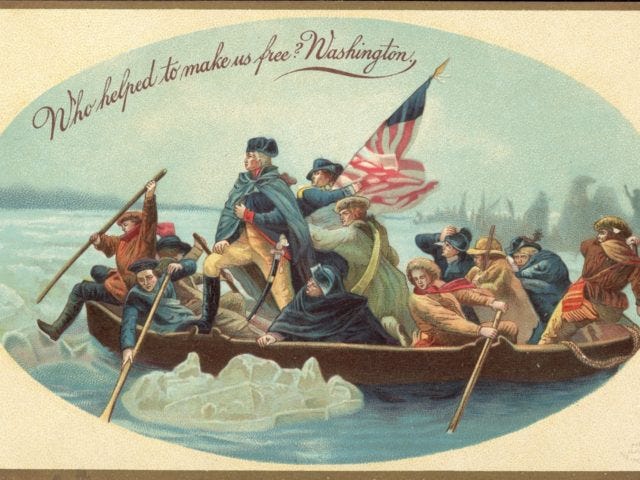
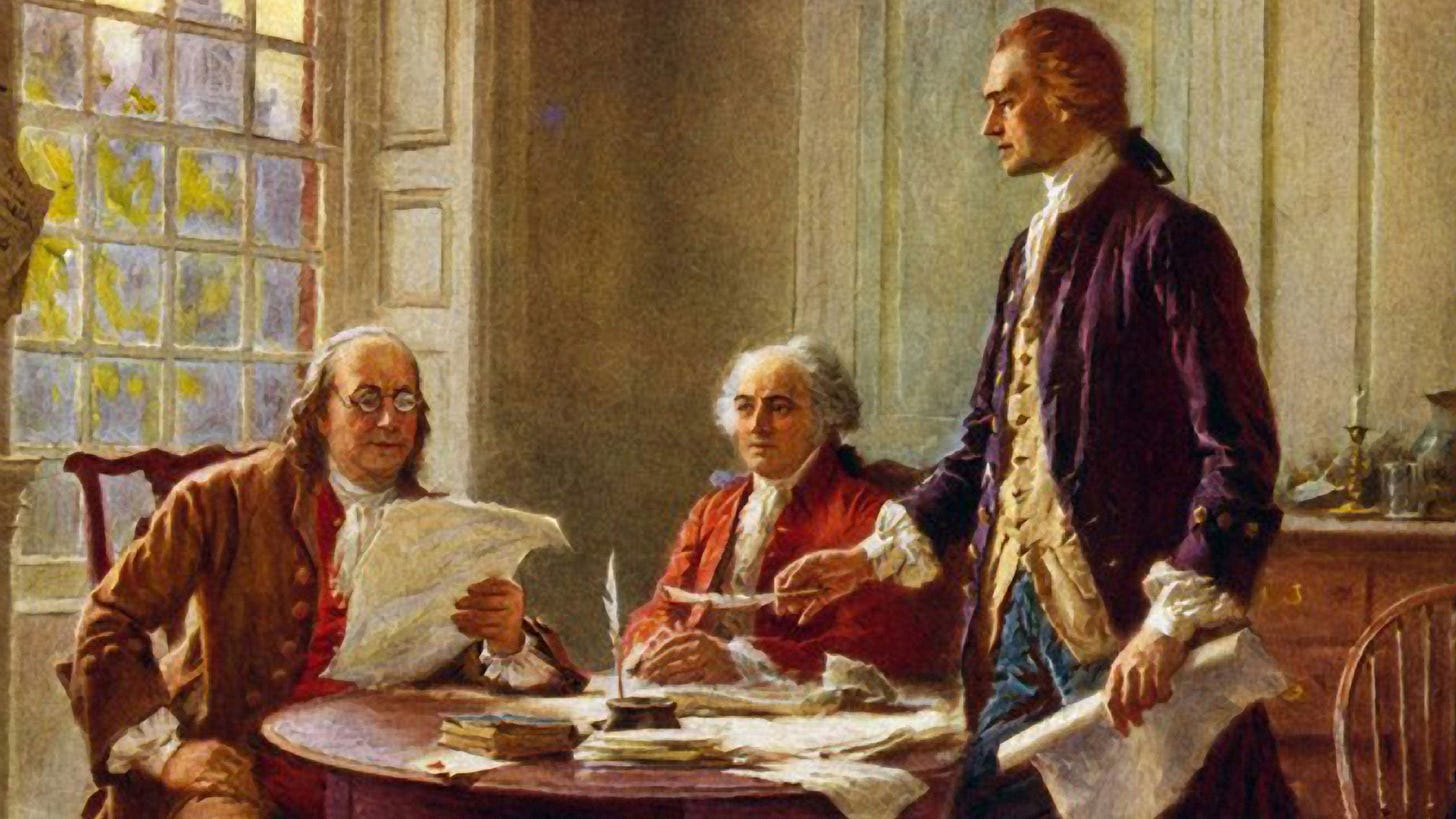
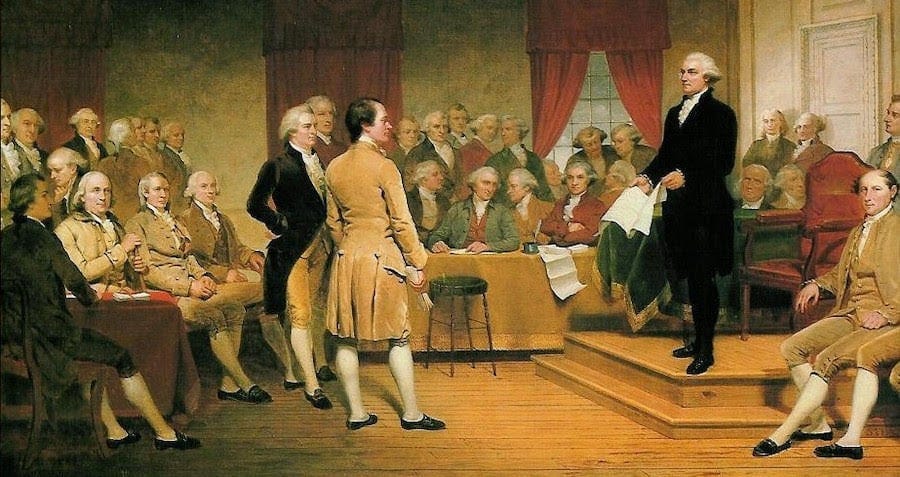
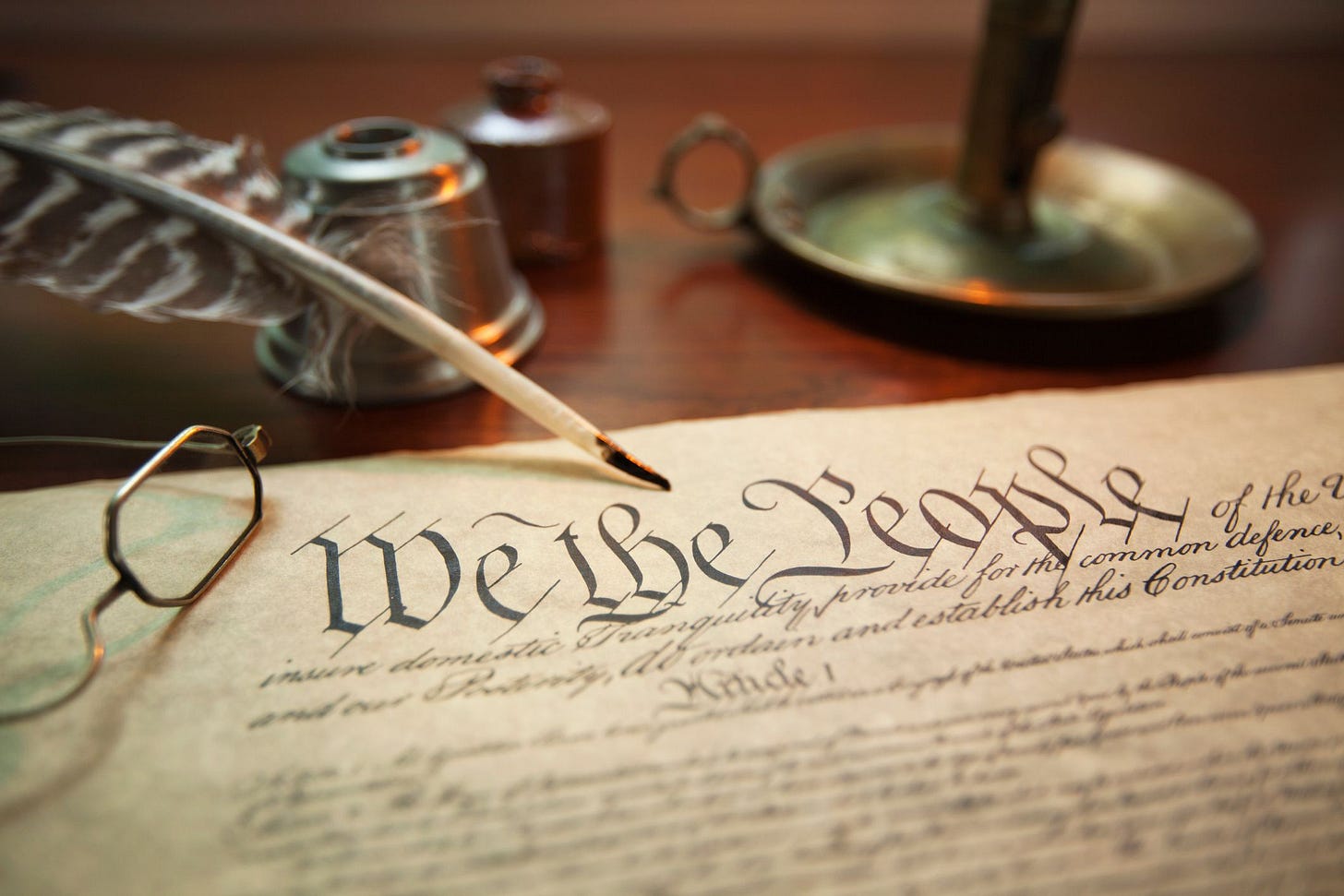
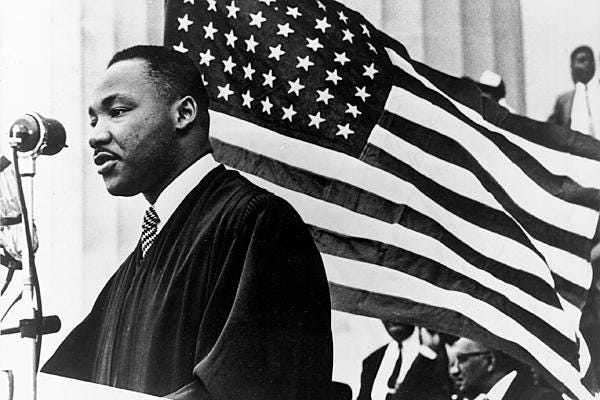

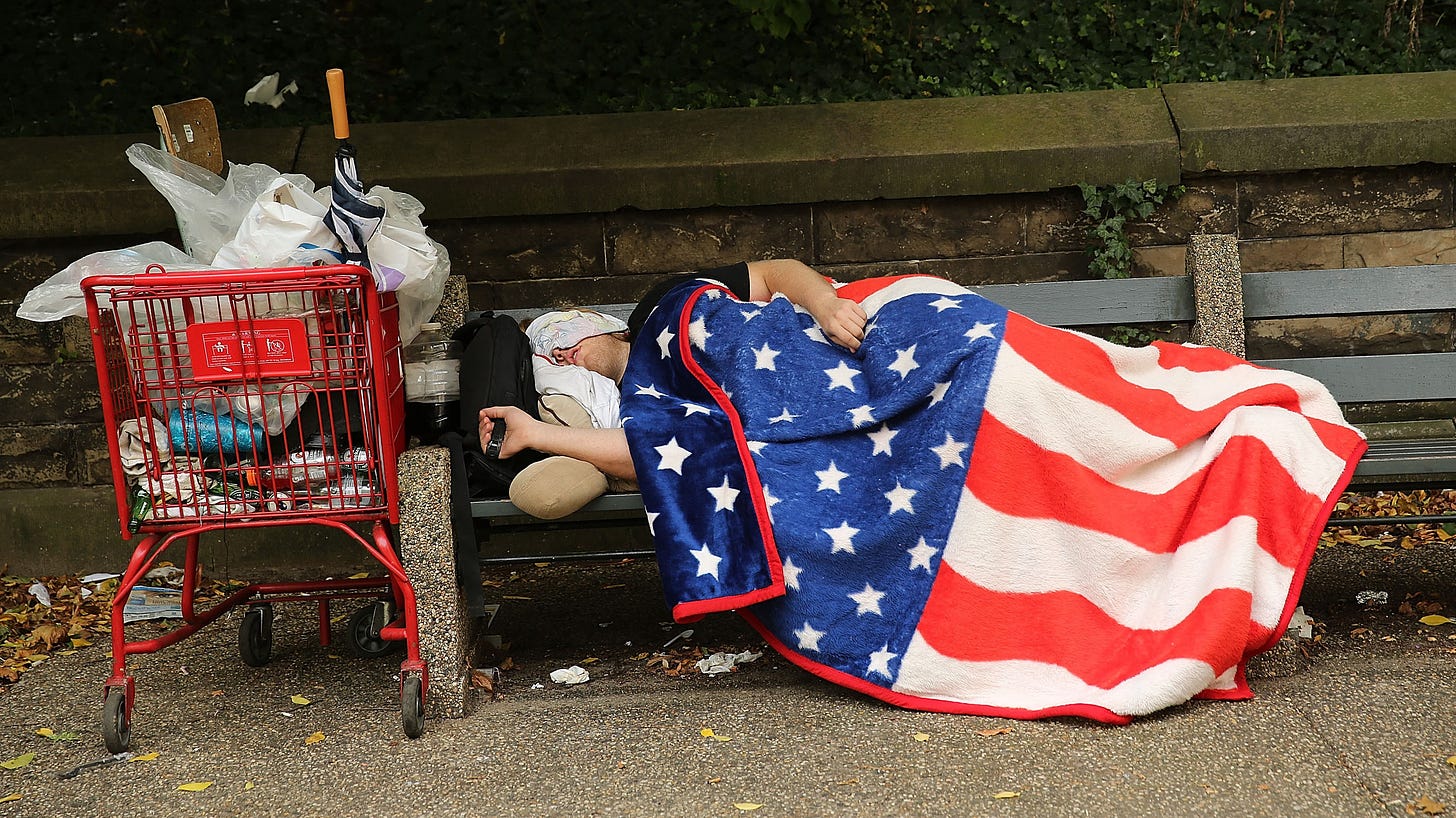
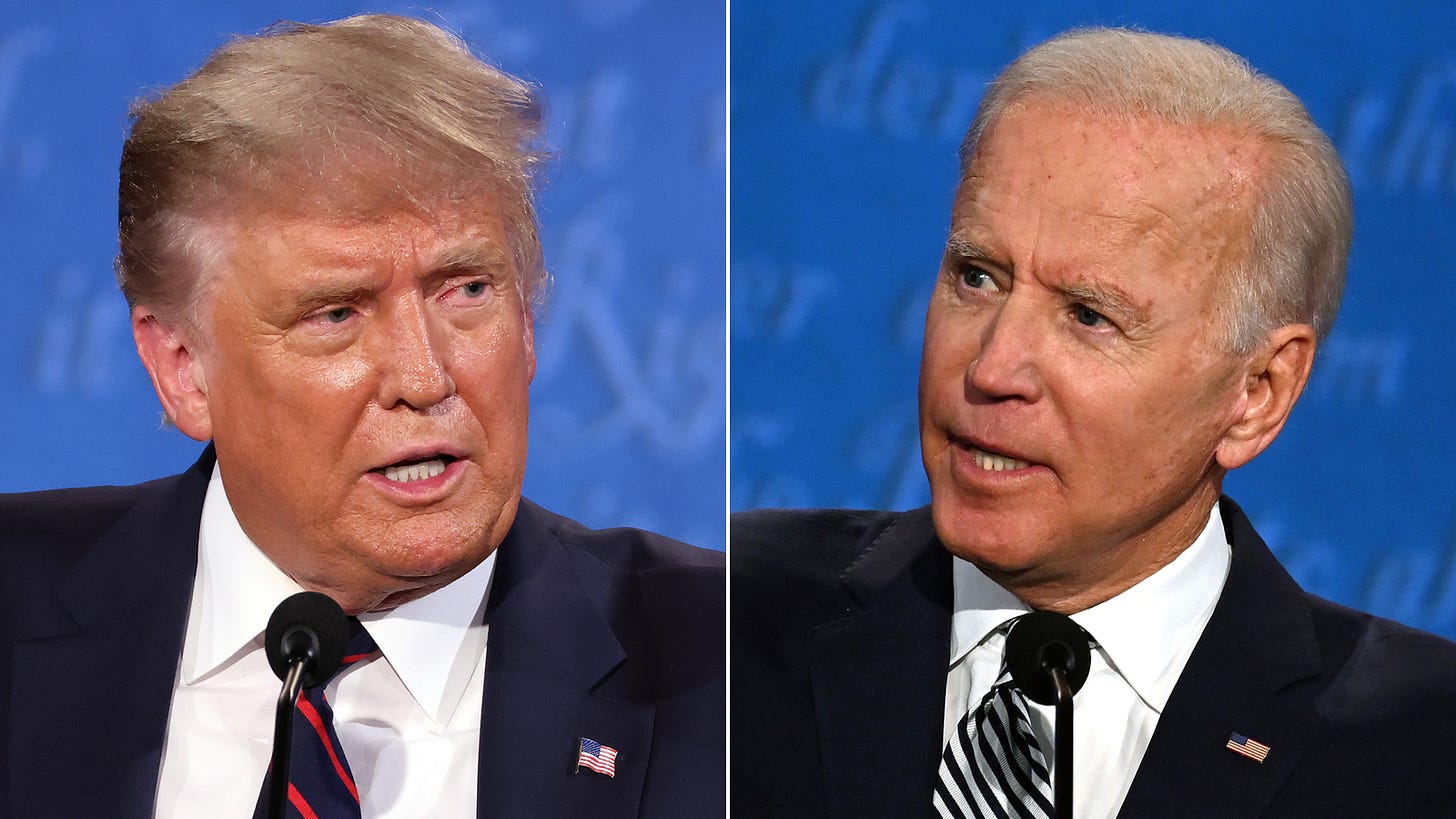
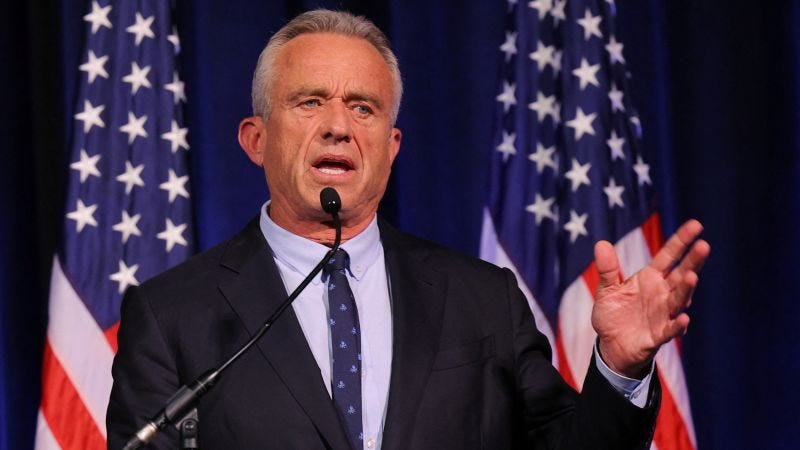
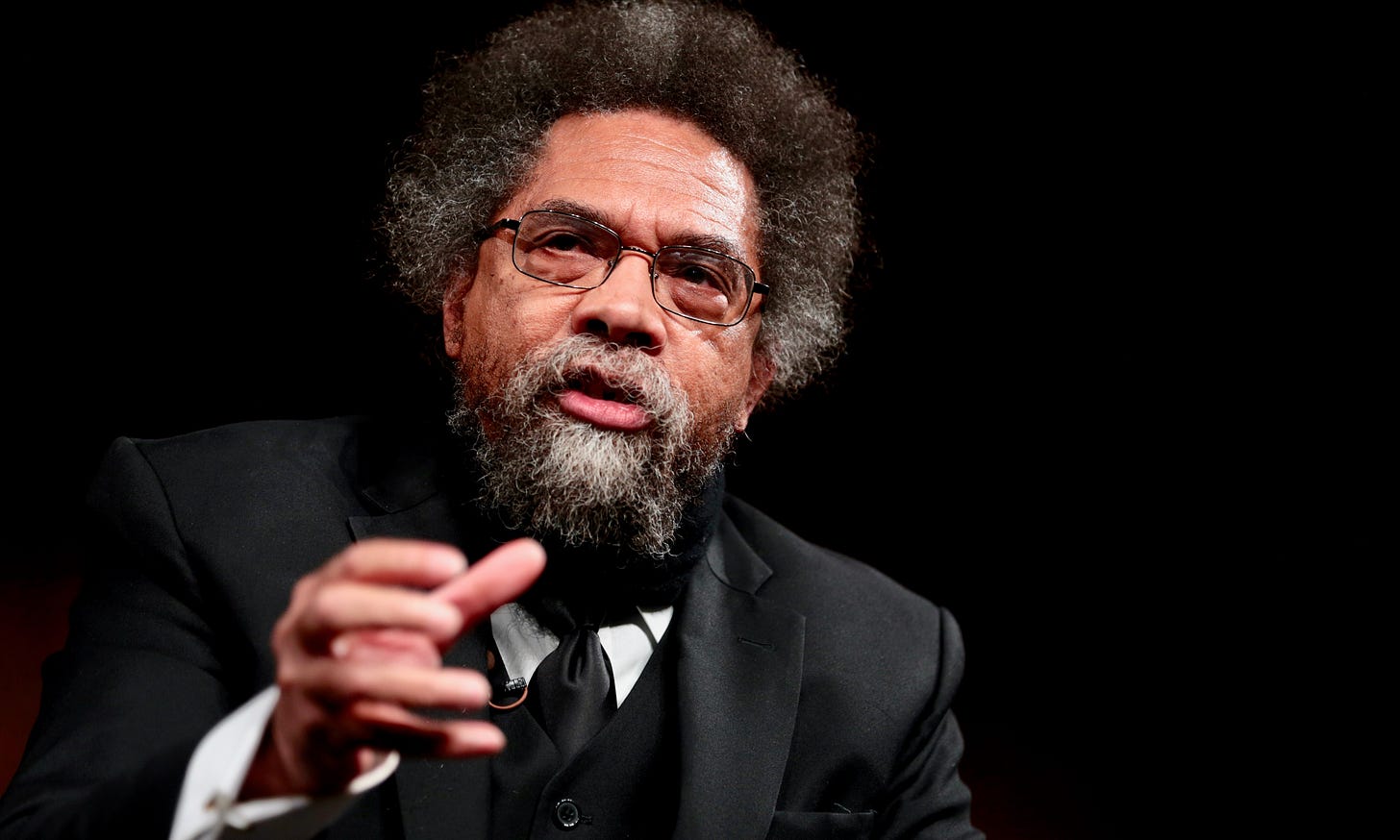

Very thought provoking article, well done.
Acknowledging the progressive content of the bourgeois democratic revolution against the British Empire in the eighteenth century is particularly commendable. A lot of people seem to me to want to cover up for today's bourgeois democracy by condemning the past, implicitly pretending that "we" are morally improved and know better and now the Constitution and the status quo can be reformed once we confess our past sins. Or something like that, though perhaps I am being unfair? By the way, as I understand it, women and Blacks who had sufficient property could and did vote, until the spread of manhood suffrage limited the privilege to white men (with a good deal of flexibility as to immigrants, depending on location and period.)
I would quibble that distinguishing phases of the anti-colonial revolution is useful. The people who fought the revolution I personally call the Founders and the people who wrote the Constitution I call the Framers. To my eye, the Philadelphia convention bears a similar relationship to the American Revolution as the Directory does to the Great French Revolution, a sharp right-ward turn. The luck of geography and lower population and frontier land permitted a longer run to the first Constitution than fell to the lot of the Directory, overthrown by Napoleon I. The Second American Revolution, called usually the Civil War, rewrote the Constitution via amendment (the Supreme Court has fought a rear guard fight against the Civil War amendments for decades!) But the Framers' work failed too, even if it took longer than the Directory. It had its first constitutional crisis in 1800. But as early as 1820 polarization over the ramshackle cobbled up framework began to fall apart, ending inevitably in war.
The founders included people like Thomas Paine, author of Common Sense and the Crisis and Agrarian Justice. It is no accident Paine was read out of history in favor of John Adams. Benjamin Franklin's role in the replacement of Pennsylvania's government by a unicameral legislature is also erased. Benjamin Franklin, George Washington and Alexander Hamilton, who were revolutionary activists so to speak, did not take a major role in the deliberations in Philadelphia, despite their importance in the meeting of the convention. I don't think this was an accident. [By the way, the Christian Parenti book on the Radical Hamilton is useful to read as a corrective.]
It also seems useful to remember that the second anti-colonial revolution against the British Empire, what we call the War of 1812, was followed by a wave of democratization in the form of manhood suffrage and in the North, completion of the revolutionary movement towards abolition of slavery. What's called the Age of Jackson, a populist "revolution" far more genuine that the Jeffersonian "revolution" of 1800. True Jeffersonianism I think was exemplified by the Tertium Quids or Old Republicans led by John Randolph. Sometimes I wonder if Jefferson's work on the Declaration of Independence wasn't largely cynical rhetoric on his part, seeing not only as not the reality but not even an honest promise or sincere hope.
Dr. West I don't want to abuse, but religion is usually a bad guide to politics and I tend to regard them as largely meteors, even those who don't repent of their radical entanglements like Rev. A.J. Muste.
The issue of class immunity for the rich and powerful being reduced to lawfare may need some discussion?